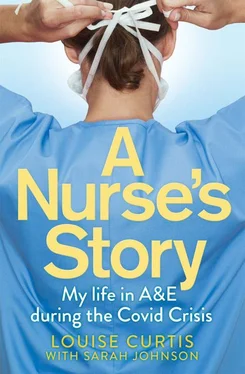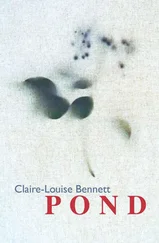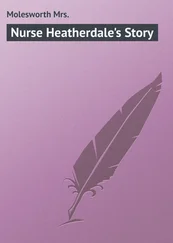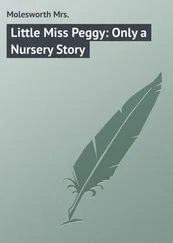‘Oh. Er, OK, if I must.’
Four hours later she strolled back in to the department with a considerably pinker face than before. She had obviously been sitting out in the sun enjoying a few alcoholic drinks. We sent her straight to the cardio ward for treatment.
She was in contrast to my other patient that day with a heart attack who was so panicked it was hard to tell whether her chest pain was due to cardiac damage or overwhelming anxiety.
The rest of the day was taken up with people who were struggling with the heat. It was sweltering outside and there wasn’t a cloud in the sky. I saw patients who had collapsed while out shopping, or felt bad after spending all day in the sun after a heavy drinking session the night before. The number of acute kidney injuries, brought about by dehydration, stacked up as time marched on.
I got home after my shift and sat down to watch the news. It was 25 June, a hot day, and there were images of Bournemouth beach crammed with people. The pictures were everywhere and a major incident had been declared. I was furious and so were my colleagues. One wrote on a work Facebook group that he was raging. He and his wife had worked opposite rotas in high-risk areas of the NHS with children at home and it was galling to see people flout all the guidance because the sun was out.
I know what a major incident feels like because I’ve worked through them in the hospital. Hospitals would be seeing an influx of drunk or sunburnt patients, both problems self-inflicted, and adding pressure to already overburdened services.
The next day, Ed and I were listening to the radio in the car when a caller rang in and blamed the government for the whole fiasco. This just made me angrier. I could certainly see that the government’s messaging around guidelines wasn’t clear at all, and of course I was eagerly awaiting the results of an inquiry into what had gone wrong, but it wasn’t their fault that loads of people had all gone to the same beach at the same time.
At this point the death toll each day in the UK was still surpassing 100 and there were thousands of new cases. Worldwide, the virus was running rampant through the US, India and Brazil. Cities in China had also already locked down again after outbreaks were discovered.
We were also gearing up for the weekend of 4 July in A&E. Pubs were due to open again and extra shifts were being advertised. Super Saturday, as it was labelled, was going to be utter carnage. I’d noticed in the city centre that people were all over the place and not sticking to the one-way system. I didn’t dare imagine what would happen when they’d had a few drinks.
14
Road Traffic Accidents
Back in A&E, we were all starting to feel the pressure of having only two isolation units open. The third had by this point been returned to its former glory as part of minors. It was imperative that we did not exceed capacity in isolation as there was nowhere else to put Covid patients; they’d have to stay on the ambulance until there was room. If that happened, that vehicle would be out of action and unable to get back on the road and pick up other people who might be in danger. All of us working in the isolation units knew we had to act and make decisions quickly, especially when both were full, which was happening quite a lot. I knew the overall number of coronavirus cases was dropping – our daily emails from the trust were now appearing in my inbox only three times a week. When coronavirus was at its peak, we’d have hundreds of confirmed and suspected cases and every day for weeks the numbers didn’t change. Now it was down to just below 100 confirmed and suspected combined.
I didn’t think many of my patients on one of my night shifts in isolation had Covid-19. Anyone who was short of breath or had chest pain was a possibility though and had to come via the isolation unit unless it was glaringly obvious that their symptoms were attributable to something else. Once they were in the unit, we would take a closer look at them and move them on, if appropriate. While shortness of breath was a definite marker of coronavirus, it was also a factor in a load of other medical conditions.
It got to 6 a.m. and there was a rush of patients. Older people had got out of bed and collapsed on the floor sustaining head injuries, hip and rib fractures, or collapsed lungs. Others had gone to bed feeling ill but had hoped they would feel better in the morning. When they woke up and realized they had deteriorated, it wasn’t long before they were in with us.
Outside of the isolation unit that night, the cold resus had been busy dealing with road traffic collisions, or RTCs for short. When I had a chance to pause for a moment to think, I realized we hadn’t had anywhere near as many of these for a long time during lockdown. Now numbers of crashes were getting back to normal. There were two in that night. One was a drunk driver who crashed into a tree and hadn’t been wearing a seatbelt. He died shortly after arriving. The other was a woman in her thirties who had recently got married and had a baby at home. She came in fully alert but suddenly tanked and then arrested. In a last-ditch attempt to save her life, the team cut open her chest to look for where blood was escaping and to clamp the aorta to stop it supplying the lower limbs and focus on the vital organs. It’s a brutal procedure and only done when absolutely necessary. Unfortunately, she didn’t make it. The other driver involved in the crash hadn’t come into the department. I guessed that they had escaped without injuries because they were in a much larger vehicle.
When I was a more junior nurse, I’d often be in charge of the resus department and RTCs were a frequent occurrence. If it was a bit icy or if it had been raining overnight, it would get to 7 a.m. and the red phone was guaranteed to go off with news that someone would be turning up who had usually skidded in a vehicle. I’d be due to finish in an hour and on my last legs and would have to rally the whole team and get a bay ready to receive a trauma patient and make sure we had all the right equipment.
Apart from that we also see a lot of hit and runs and people driving with too many others in the back. It’s gut-wrenching when we have victims of a crash where five or six people have crammed into a car with only four seat belts. All too often the person sat in the middle of the back seat has shot through the windscreen and died. It’s usually a group of eighteen-year-olds and the driver has recently passed their test and got their licence. I can only imagine the overwhelming guilt and regret the driver must be left with for the rest of their life.
It doesn’t escape me that one day it could be someone I know that comes in to resus. I try not to think about all the victims of car crashes I see outside of work because that is no way to live. I sometimes worry about Ed when he cycles or drives, though, because he gets so tired. He’s come off his bike two or three times before and once he even ended up in A&E. The first I found out was when I rang him from home where I was waiting for him to get back so we could eat supper together. He answered and I asked, ‘Where are you? I’m hungry.’
‘I’m at work.’
‘Why are you still there?’
‘No, I’m at your work.’
My stomach plummeted.
‘What the hell has happened?’
‘I’m OK. I was hit by a car coming out of a junction. I went over the bonnet and landed on the road. I’m badly bruised and have strained some muscles but I’ll live.’
After I’d heard about the patients that had been involved in road traffic collisions and had come into cold resus, I went to see if my colleague needed any help with his patient who was perilously close to cardiac arrest. The man’s breathing was terrible and he looked awful. The doctor dealing with him was hugely busy so I offered to phone the family. His wife picked up.
Читать дальше












